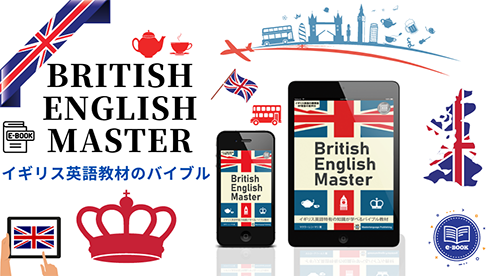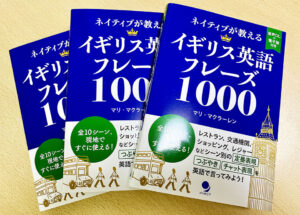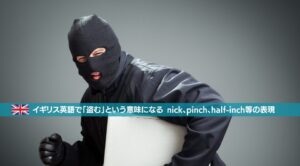外国語のボキャブラリーを効率的に覚える為の学習法と外国語学習に関する質問
今回の記事では読者の方から頂いた質問に答えてみたいと思います。しかし、今回の質問はいつもと少し違います。今回の質問は、「外国人の日本語学習者」から頂いた”日本語の勉強法”に関する質問です。
しかし、どうしてわざわざこんな質問を紹介したのかと言うと、今回私が答えた内容には「どんな外国語を勉強している学習者」にとっても共通する役に立つ情報があると感じたからです^^
そこで、今回の質問はブリティッシュ英語宛に英語で来た質問ですが、日本の読者の皆さんが読めるように翻訳してサイトにアップする事にしました。
では、質問はこちら:
読者の方の質問:
I’m now studying Japanese. I’ve visited this website many times in order to find out the differences between the two languages. And there’s the only thing that I can hardly understand. It’s the way they say the date. In English, we put ”th,” ”rd” or “nd” at the bottom. But in Japanese it’s quite complicated. And I’m finding it hard to memorize them (I can’t understand that they say 20th as Hatsuka). I would appreciate it if you would tell me the effective way to master them all and why they say the date so differently to the way they say the number.
まずは英語で来た質問をそのまま載せてみました。読者の皆さんは、今回の質問について分かりましたか?この方の質問は簡単に言う以下の要点にまとめる事が出来ます:
-
1. どうして日本語の日付の言い方と数字の言い方が異なるのか?
2. どのようにしてそういった覚えづらいボキャブラリーを覚えればいいのでしょうか?
当サイトの読者の方は殆どが日本人(外国人の英語学習者の方もいます)だと思いますので、1番目の質問は関係ないので英語だけで答えてみます。
2番目の質問はどの言語学習者にも当てはまる部分なので、英語と日本語で答えてみたいと思います。

覚えづらい外国語のボキャブラリーはどうやって覚える?
こちらの記事もおすすめです:
覚えづらい外国語のボキャブラリーを上手に覚える方法
マリの答え:
Hi! Thank you for your question and thank you for reading my site. I’m glad you have found it useful.
I want to answer your question in two parts – first, I will talk about why the dates, counters and numbers are different in Japanese, then I will talk about how to memorise difficult vocabulary. I hope my answer is helpful!
As far as I understand, the pronunciation of the cardinal numbers (1,2,3, etc.) in Japanese comes originally from Chinese. They are the Sino-Japanese or on’yomi readings of the numbers. The ordinal numbers (一つ、二つ hitotsu, futatsu, etc.) and the dates come from the original native Japanese readings (kun’yomi). Of course, this means we have to memorise twice as many words. I had a lot of trouble memorising the dates in Japanese. Unfortunately, although it is a hassle, it is worth doing because this vocabulary is used a lot in daily conversation.
When memorising the dates, there are only really about 13 words you have to memorise. 1-10, 14, 24 and 20. The other dates are logical as you only need the number plus 日(にち).
- 1st ついたち tsuitachi
- 2nd ふつか futsuka
- 3rd みっか mikka
- 4th よっか yokka
- 5th いつか itsuka
- 6th むいか muika
- 7th なのか nanoka
- 8th ようか youka
- 9th ここのか kokonoka
- 10th とおか tooka
- 14th じゅうよっか juuyokka
- 20th はつか hatsuka
- 24th にじゅうよっか nijuuyokka
The 1st (tsuitachi) is irregular but easy to memorise because it is derived from the old Japanese word tsuki tachi (月立ち). Tsuki (月)means “moon” or “month” so you can remember that “tsuitachi” means “the month beginning”. (At least that’s what Wikipedia says! https://en.wikipedia.org/wiki/Japanese_calendar)
The pronunciation of the 20th (hatsuka) comes from the old word “hata” for 20 (I think!). That’s why “20 years old” is not “nijuusai” but “hatachi”.
14th and 24th are just juu + yokka and nijuu + yokka so if you can remember 4th, you can remember the others too.
Anyway, if you can’t memorise them straight away, don’t worry because in my experience most people will understand if you say 一月のいちにち instead of 一月のついたち (January 1st) or whatever. However, native Japanese speakers will say 1月のついたち without fail so even if you can’t remember these words yourself you will hear them in conversation and gradually come to remember them.
Next, I want to give some advice about how to remember difficult vocabulary. In my experience, memorising words as a list doesn’t really work as you end up forgetting them quickly and can’t bring them to mind when you need to use them in conversation. I have always tried to memorise tricky words as part of a sentence. So, in the case of dates, try making sentences incorporating the most difficult to remember dates. For example, “My birthday is January second” (私の誕生日は一月の二日です)、or “February fourteenth is Valentine’s Day” (二月の十四日はバレンタインの日です). If you put the vocabulary into contenxt I think it is much easier to remember. So try making sentences using your friends’ or family’s birthdays and keep practising and repeating them over again. I think it will make it easier.
Some people like to use flashcard programs on their computer or smartphone or even use paper or card flashcards. I think this is a good idea but again, I think it is better to put sentences on the flashcards instead of individual words so you can remember the vocabulary in context.
As you come to learn more Japanese vocabulary you will find it gets easier anyway, as you get used to the sound of the language and your brain connects related words. I also advise spending as much time as you can listening to Japanese – whether it’s podcasts, music, TV dramas or the dialogues that come with textbooks. The more you listen the more you will notice the vocabulary you are trying to learn crop up in conversation.
I hope that helps! I’m sorry I can’t give more specific advice on how to learn the dates. Good luck with your studies. If you have any more questions, please don’t hesitate to get in touch!
それでは、長くなりましたが日本語の説明に戻ります^^ では一体どうすれば難しいルールの外国語のボキャブラリーを覚える事が出来るのでしょうか?
私の経験では、日本の中学生はボキャブラリーを覚える際に単語リストつくり、それらをそのままを覚えようとしますが、この方法はあまり効果的ではないと思います。
何故なら、こういった学習法は実際に使える知識を欠いたまま単語を覚えてしまっている事になります。ボキャブラリーを覚える際には「使い方や単語のコロケーション」を同時に覚える必要があると思います。
そして、実際の英会話では単語と単語は繋がって使われる事が多いので、その単語自体を知っている場合でも聞き取れない場合も多いです。
ですから、それぞれの単語を覚える事ではなく、「文章単位で単語を覚える」といった学習法がお勧めです。そうすると、その単語を文脈で覚えられますし、文章の中の発音も分かります。
以上の事から、私がこの読者の方にアドバイスしたのは、覚えたい単語を使って自分にとって意味のある文章に入れて覚える方法がいいと思います。
文章で説明するとわかりづらいので、例えば、日本語の日付は外国人の学習者にとって覚えにくいので、「自分の誕生日やバレンタインやクリスマスのようなイベントの日付」を使って文章を書く練習をした方がいいと思います。そして、その文章の形(パターン)を暗記するべきだと思います。
フラッシュカードは言語学習者に人気のあるツールですが、フラッシュカードを使う場合は、「単語ではなく文章で」書いた方がいいと思います。
例えば、質問した方の場合、フラッシュカードの表面に日本語の文章を書いて、裏面に英語の文章を書きます。この際フラッシュカードを使って自分にテストをする時に、先に英語の文章を読んで、その後に日本語に翻訳してみます。そうすると日本語力は直ぐに伸びると思います。私はそういった方法で数多くの日本語のボキャブラリーを覚えました。
そして、私の意見として最も重要な事は、リスニング量を増やす事です。自分が学んでいる言語のメディア(ドラマ、映画、ポッドキャストなど)をよく聞くと、自分が覚えたいボキャブラリーがよく出てくる事に気がつくと思います。
その覚えようとしているボキャブラリーを何回もリスニングしていけば、そのうちにちゃんと覚えられるようになると思います。そうやって覚えたボキャブラリーは、自分が会話で使いたい時に、直ぐに口から出てくると思います。
皆さんは、どのようにしてボキャブラリーを覚えていますか? アドバイスがあれば、是非「ブリティッシュ英語の公式フェイスブックページ」に是非コメントを残してくださいね^^











